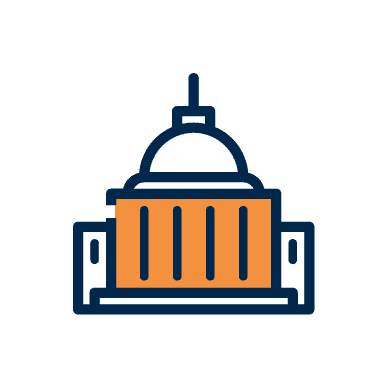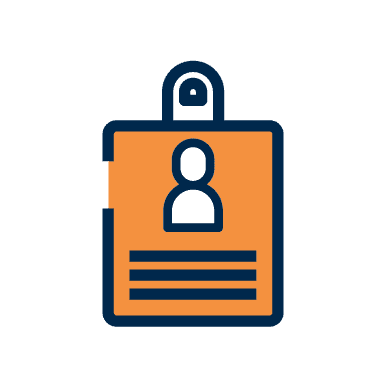
In 2016, the Health and Human Services (HHS) Office of the Inspector General (OIG) described its ten most pressing challenges across all HHS programs, including Medicaid. The challenges cover a range of issues including quality improvement, fiscal management, public health and safety, and cybersecurity. One of these priority challenges focuses on Medicaid administration and program integrity. In this article, we’ll explain this challenge, what the OIG has done about it, and what it still plans to do in the future.
Why Medicaid Administration & Oversight Are A Challenge
One of OIG’s ten priority challenges is “effectively administering the Medicaid program to improve oversight of managed care, address high improper payments, and strengthen program integrity.” Medicaid is the third largest domestic program in the federal budget after Social Security and Medicare, so it’s important to use dollars wisely and avoid fraud, waste and abuse.
This has become even more important now that Medicaid has expanded under the Affordable Care Act. In addition, HHS has some new challenges with overseeing services like personal care services, which allow older adults and those with disabilities to remain at home instead of in an institution. These services can save the Medicaid program money on long-term care but are currently vulnerable to fraud and abuse.
What the OIG Is Focused On
- Oversight of managed care. As more states turn to managed care—not only for medical care but for long-term care and behavioral health—it is becoming more important than ever that managed care organizations be held to the same high standards as the state administrative agencies are. For example, providers affiliated with managed care organizations should be screened just as other providers are.
- Addressing high improper payments. OIG wants to make sure that payments go only to enrolled providers for covered services. In recent years, the number of improper payments has increased. This is due, in part, to the rules for provider enrollment under the Affordable Care Act. Some state agencies have had trouble fixing their provider enrollment systems to comply with the new requirements and, as a result, payments have gone to providers who were not properly screened and enrolled.
- Strengthening program integrity. One way to prevent fraud and abuse is to ensure that all providers are screened and enrolled properly. OIG is working with state Medicaid agencies to make sure they are screening providers appropriately before enrolling them and allowing them to be paid for services. All providers, even network providers in managed care organizations, should be screened to be sure they are not on the OIG exclusion list.
Progress OIG Has Made
OIG has been working on its challenges together with the Centers for Medicare and Medicaid Services to strengthen Medicaid administration and program integrity.
- New Medicaid managed care regulations. In May 2016, the Center for Medicare and Medicaid Services (CMS) issued the final rule governing Medicaid managed care. These new regulations strengthen oversight of managed care organizations to make them more transparent and accountable for their provider network and the services they deliver. One provision requires network providers to be screened and validated, patching a previous gap in provider enrollment screening.
- Program integrity measures and corrective action plans for improper payments. Many providers were improperly paid in the last year because the providers were not enrolled, screened and validated as they should have been. CMS continues to work with states to help them come into compliance with enrolling and screening all referring and ordering providers. CMS has also been helping individual states to fix provider enrollment problems OIG has identified. Another notable program integrity effort by CMS: addressing persistent problems with fraud, waste and abuse in personal care services. CMS is currently assessing its options for addressing this widespread and ongoing problem.
Work the OIG Is Still Planning To Do
Although much progress has been made in addressing Medicaid oversight challenges, some work remains. Below is a description of what HHS plans to do or continuing doing to address the challenges.
- Fully implement the Medicaid managed care rule. Many of the provisions of the new managed care rule have been implemented but others, such as the network provider screening provision, will be implemented in the coming year. CMS continues to provide guidance to states and help them develop the operational capacity to comply with the regulations.
- Continue to develop and monitor corrective action plans for provider enrollment. To reduce the rate of improper payments, CMS will continue to support states and hold them accountable for provider screening and enrollment.
- Hold states accountable for implementing program integrity measures. CMS will work with states to help them implement all the program integrity measures required by the Affordable Care Act. Provider screening and enrollment is one part of this. But CMS will also help states use CMS resources in innovative ways to identify and address payment vulnerabilities. States will also be expected to improve the quality of their data around provider enrollment, delivery of services, and payment for services. Finally, CMS will be working to tighten delivery and payment control of home- and community-based services such as personal care services.
For more information about the OIG’s top challenges, updates to Congress, and work plans, see the Top Management & Performance Challenges Facing HHS.
To learn more about State Medicaid compliance, visit our MEDICAID EXCLUSION LIST page.




































